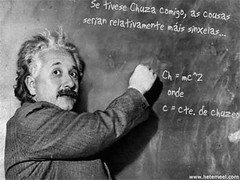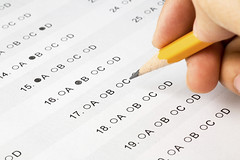| 9131400761 | intelligence | mental quality consisting of the ability to learn from experience, solve problems, and use knowledge to adapt to new situations |  | 0 |
| 9131400762 | Charles Spearman | used and developed factor analysis (identifies clusters of related items) and argued in the g factor (general intelligence) |  | 1 |
| 9131400763 | general intelligence (g) | a general intelligence factor that according to Spearman and others underlies specific mental abilities and is therefore measured by every task on an intelligence test | 2 | |
| 9131400764 | L. L Thurstone | He stated that there are 7 primary mental abilities including reasoning, verbal comprehension and memory. |  | 3 |
| 9131400765 | Howard Gardner | He said abilities are best classified into 8 intelligence including spatial, musical, logical-mathematical, linguistic, naturalist, interpersonal, intrapersonal, and bodily-kinesthetic. |  | 4 |
| 9131400766 | savants | condition where a person has limited mental ability but is exceptional in one area |  | 5 |
| 9131400767 | Gardeners Multiple Intelligences | visual/spatial verbal/linguistic musical/rhythmic logical/mathematical bodily/kinesthetic interpersonal interpersonal natural |  | 6 |
| 9131400768 | grit | passion and perseverance in the pursuit of long-term goals |  | 7 |
| 9131400769 | analytic intelligence | (academic-problem-solving) traditional intelligence traits |  | 8 |
| 9131400770 | creative intelligence | reacting adaptively to novel situations and generating novel ideas |  | 9 |
| 9131400771 | practical intelligence | required for everyday tasks where multiple solutions exist |  | 10 |
| 9131400772 | emotional (social) intelligence | perceiving emotions understanding emotions managing emotions using emotions |  | 11 |
| 9131400773 | delayed gratification (self-discipline) | is the key to long term success (according to the Stanford Marshmallow Experiment) |  | 12 |
| 9131400774 | Alfred Binet | helped label kid's mental ages to help predict future performance |  | 13 |
| 9131400775 | mental age | the chronological age that most typically corresponds to a given level of performance |  | 14 |
| 9131400776 | Lewis Terman | He was a Stanford professor and created the Stanford-Binet IQ test. |  | 15 |
| 9131400777 | IQ score | (Mental Age/Chronological Age) x 100 | 16 | |
| 9131400778 | Wechsler Adult Intelligence Scale (WAIS) | most widely used intelligence test; contains verbal and performance (nonverbal) subtests |  | 17 |
| 9131400779 | performance subtest | spatial relations, perceptual skills, and speed of thinking |  | 18 |
| 9131400780 | verbal subtest | language based and abstract cognitive skills |  | 19 |
| 9131400781 | Wechsler Intelligence Scale for Children (WISC) | similar to WAIS 6-16 year olds |  | 20 |
| 9131400782 | what IQ measures | a person's cognitive ability compared to population at large mental speed and span of your working memory |  | 21 |
| 9131400783 | achievement test | a test designed to asses what a person has learned |  | 22 |
| 9131400784 | aptitude test | a test designed to predict a person's future performance, aptitude is the capacity to learn |  | 23 |
| 9131400785 | standardization | defining uniform testing procedures and meaningful scores by comparison with the performance of a pretested group (Representative sample) form a normal distribution or bell curve |  | 24 |
| 9131400786 | normal curve (normal distribution) | symmetrical, bell shaped curve that describes the distribution of many types of data most scores fall near the mean |  | 25 |
| 9131400787 | 68% | Amount of people with IQs between 85 and 115 (one SD of the mean) |  | 26 |
| 9131400788 | 95% | Amount of people with IQs between 70 and 130 (two SD of the mean) | 27 | |
| 9131400789 | The Flynn Effect | intelligence scores have risen throughout the last 100 years or so (due to environment) |  | 28 |
| 9131400790 | reliability | when it yields consistant results | 29 | |
| 9131400791 | split- half reliability | dividing the test into two equal halves and assessing how consistent the scores are | 30 | |
| 9131400792 | alternate-forms reliability | using different varieties of the test to measure consistency between them | 31 | |
| 9131400793 | test-retest reliability | using the same test on two occasions to measure consitency | 32 | |
| 9131400794 | validity | the extent to which a test measures what it is supposed to meaure | 33 | |
| 9131400795 | content validity | extent to which a test accurately measure the subject intended to measure (entirety, breadth, etc.) | 34 | |
| 9131400796 | predictive validity | the extent to which test score forecasts future behaviors or results |  | 35 |
| 9131400797 | criterion validity | scores on a particular test are positively correlated with scores on another existing and well established test (criterion) of the same skill, trait, ability | 36 | |
| 9131400798 | crystallized intelligence | our accumulated knowledges reflected in vocabulary and analogies tests increases with age |  | 37 |
| 9131400799 | fluid intelligence | our ability to reason speedily and abstractly, as when solving novel logic problems decreases with age |  | 38 |
| 9131400800 | intellectual disability | limited mental ability intelligence score of 70 or below formerly referred to as mental retardation |  | 39 |
| 9131400801 | down syndrome | mild to severe intellectual disability and associated physical disorders extra copy of chromosome 21 |  | 40 |
| 9131400802 | High Intelligence | typically 130 IQ and above gifted education programs |  | 41 |
| 9131400803 | z-score | tells us whether a particular score is equal to the mean. below the mean or above the mean, by how many standard deviations |  | 42 |
| 9131400804 | percentile rank | percentage of scores that fall below a given score |  | 43 |
| 9131400805 | heritability | proportion of variation among individuals that we can attribute to genes |  | 44 |
| 9131400806 | stereotype threat | a self-confirming concern that one will be evaluated based on a negative stereotype |  | 45 |
| 9131400807 | Sternberg's Triarchic Theory | This theory holds that there are three types of intelligence. | 46 |
AP Psychology Testing and Intelligence Flashcards
Primary tabs
Need Help?
We hope your visit has been a productive one. If you're having any problems, or would like to give some feedback, we'd love to hear from you.
For general help, questions, and suggestions, try our dedicated support forums.
If you need to contact the Course-Notes.Org web experience team, please use our contact form.
Need Notes?
While we strive to provide the most comprehensive notes for as many high school textbooks as possible, there are certainly going to be some that we miss. Drop us a note and let us know which textbooks you need. Be sure to include which edition of the textbook you are using! If we see enough demand, we'll do whatever we can to get those notes up on the site for you!

